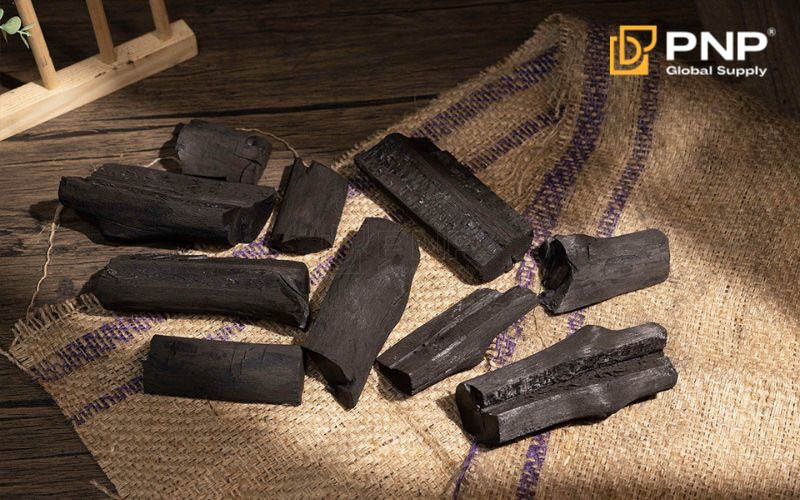Exporting charcoal can be a profitable business, but understanding the proper regulations and classifications is essential. One of the most important aspects of charcoal trade is the charcoal HS code, which ensures smooth customs clearance, accurate taxation, and compliance with international trade rules. This guide will help exporters, importers, and suppliers navigate the world of charcoal codes, including tips for briquette BBQ, natural hardwood charcoal, and more.

Understanding Charcoal HS Code
HS codes, or Harmonized System codes, are standardized numerical codes used globally to classify traded products. In the charcoal industry, HS codes help identify the type of charcoal being exported, whether it’s for household use, industrial purposes, or specialized cooking. Using the correct charcoal HS code ensures that shipments avoid delays at customs, reduces risks of fines, and makes it easier to track trade statistics.
Charcoal is commonly divided into several categories:
- Briquette charcoal – Compressed charcoal made for grilling and barbecues.
- Lump charcoal – Charcoal made from wood trees, often preferred for its long-lasting heat and minimal smoke.
Each type has a specific HS code, which must be accurately documented when shipping internationally.
For charcoal exports from Vietnam, the most widely used HS code is 4402 – Wood charcoal, including shell or nut charcoal, whether or not agglomerated. Exporters typically declare 4402.10.00 for natural lump charcoal and 4402.90.00 for charcoal briquettes or other agglomerated forms. Choosing the correct sub-code is essential because import regulations and duties may vary by product type. Before shipping, confirm the final HS code with local customs or through the VNACCS/VCIS system to ensure compliance and avoid clearance delays.
Popular Charcoal Types and Their HS Codes
- Briquette charcoal
Briquette charcoal is widely used in restaurants and homes for grilling. These uniform blocks burn evenly and provide consistent heat. Exporters dealing with briquette charcoal should use the appropriate HS code to differentiate it from natural lump charcoal. This distinction is crucial for charcoal export business operations. - Lump charcoal
Made from wood trees, this type is popular among BBQ enthusiasts and professional chefs. Lump charcoal status ensures longer burn time and less smoke. Using the correct HS code helps charcoal export buyers identify and import the product efficiently.

Key Considerations for Charcoal Export Business
Running a charcoal export business requires more than just producing quality charcoal. Exporters must comply with international trade regulations, which include:
- Accurate documentation of HS codes.
- Compliance with environmental and safety standards.
- Proper packaging and labeling to meet import requirements.
Failing to classify products correctly can result in shipment delays, fines, or even rejection by customs authorities. For businesses involved in charcoal export, keeping up-to-date with global trade regulations is essential for maintaining credibility and trust with charcoal suppliers and buyers worldwide.
Importers and International Trade
International buyers, or BBQ charcoal importers, rely on accurate HS codes to calculate duties, comply with regulations, and manage inventory. Understanding the specific HS code of your charcoal type simplifies the import process and reduces administrative burdens. Key exporting destinations often require:
- HS code identification on invoices and customs documents.
- Detailed product descriptions specifying charcoal type (e.g., natural hardwood charcoal).
- Compliance with safety, environmental, and labeling standards.
Providing precise HS code information helps charcoal export buyers make informed purchasing decisions, fostering long-term trade relationships.
PNP Charcoal is a trusted supplier of premium charcoal, providing accurate charcoal HS code documentation for smooth imports. Visit our website: pnpcharcoal to learn more and start your order today.
Tips for Efficient Charcoal Export
To streamline your charcoal export business, consider these practical tips:
- Double-check HS codes for each product type to avoid customs delays.
- Maintain clear records of charcoal sources and production methods.
- Ensure proper packaging to prevent damage during charcoal delivery.
- Communicate with charcoal suppliers and buyers about expected delivery timelines and quality standards.
- Monitor international market demand for specific types like briquette BBQ or natural hardwood charcoal.
Implementing these measures reduces risks and improves efficiency for both exporters and importers.
If you’re interested in charcoal export, check out the following article: Step-by-Step Procedures for Exporting Charcoal from Vietnam Successfully
Conclusion
The right charcoal HS code is the backbone of successful international charcoal trade. Whether exporting briquette BBQ, natural hardwood charcoal, or other forms, accurate classification ensures smooth customs clearance, satisfies charcoal export buyers, and enhances the credibility of your charcoal supplier network.
Understanding HS codes, partnering with reliable suppliers, and maintaining compliance with international regulations are essential steps for anyone in the charcoal export business. Start using the correct HS codes today and make your charcoal export process more efficient, reliable, and profitable.
________________________________
Contact us for more information
Facebook: PNP Charcoal
Instagram: PNP Charcoal
Email: info@pnpglobalsupply.com




